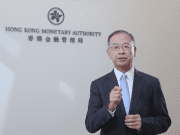10 Dangers Wealth Managers Face in their Career
When the economy is booming and income is rising, like stockbrokers and real estate specialists, wealth managers manage bigger and fast-growing wealth for clients.
- 7 Shocks for Advisors When You Get Your Financial Advisor License
- 5 Shocking Deals that shake-up Private Banking in Asia
- 20 Traders Who Lost More than a Billion
Wealth Managers could be managing millions in portfolio value and earning good income and commission. What happens when times are too good or when times are getting bad?
We look at 10 dangers Wealth Managers face in their career:
No. 1 Earning Money

Money is an important reason why many became a wealth manager or financial planner. What happens when a driven and good advisor starts earning $250,000, $500,000 and $1 Million for a couple of years? Read More: 9 Reasons why you became a Wealth Manager or Financial Advisor
Would the Wealth Manager spend less or stop spending time advising the client who has less money? Or would you choose to only serve the wealthier and richer clients?
Would you forgo money to spend time with the clients who need your advice more? But time is money, so how do you allocate your time? Or should you be doing well enough before you can spend time to help others? What if your richest client goes bankrupt – would you then stick with this client who had given you business all these while?
Danger: Money distorts your judgement to provide quality advice to all clients. Earning too much means you now have the option to select your clients. Earning too little means you are constantly thinking about how to earn more while providing advice to clients.
No. 2 Meeting Expectations

Meeting the expectations of clients is tough – fortunately for most wealth managers, you are able to choose your clients.
But meeting the expectations of your company, your management and peers is tougher. Meeting business goals such as sales and revenue are important to keep the company afloat and sustainable for all clients, yourself and the infrastructure.
Danger: Which should take priority? Fulfilling expectations of business goals, clients expectations or providing quality wealth advice? A balance means achieving less since you will not be able to excel in any. Excelling in one, means neglecting the other factors that could become a competitive disadvantage over time.
No. 3 Managing Success

Success as a Wealth Manager is a bane (harm) rather than a boon (benefit). Is a successful Wealth Manager one who earns the top income and have $50 million of earnings? How about the one that earns the trust of the most clients or the one who earns the trust of a few billionaires? Perhaps earning the trust for 3 years or 10 years is defined as a success? How about 30 years?
Danger: A Wealth Manager is in the business of managing money. The success of a Wealth Manager is dependent on the growth of their clients’ wealth. Out of 100 or 1,000 clients, a client may get a windfall of $100 Million. And you might have been lucky enough to know him or her for a long time to earn the right to manage the wealth of $100 Million.
When a Wealth Manager starts to think that their success is more important than clients success, he or she will forget his or her fiduciary duty to manage wealth for clients, and start measuring their own success.
No. 4 Continuous Learning

Wealth Management is a knowledge intensive business. Learning about global financial trends, regulations and putting together products and solutions that make sense and meet the needs of clients. What if the learning is fundamentally flawed?
Danger: Continuous Learning is often shaped by regulations and industries. In law and medicine, the people who shape the learning approach are the lawyers and doctors, who are still practicing and have practical experiences. Wealth Managers lack the skills in management and regulatory understanding to be able to shape the learning journey, which they are often less involved. Usually the banking, asset management, investment banking and insurance institutions have more influence over policies than wealth management unit.
Would you then be learning outdated practices and shaping clients’ wealth management and financial plans? Would you then be advising your clients on a flawed financial path for the next 10 years? But what if it is right? How are you able to decide?
- 10 Reasons Why Diversification Does More Harm Than Good
- Most Popular Investment Theories Clients Ask Wealth Managers
No. 5 Complex Regulations

Regulations typically tackle old problems that became big. Over the years, regulations become more and more complex, rarely simpler.
Danger: For Wealth Managers, you will have to abide by more rules. This means you will be penalized heavily for not knowing or breaching the rules – even when you knew the rules are not in the interests of clients or if your clients are strongly against it.
Examples of regulations a wealth manager is covered under:
- Advisory
- Banking
- Insurance
- Investment
- Securities
- Trust
- Local / International Financial Regulations
Example: What has FACTA (a United States regulation) got to do with everyone?
No. 6 Ethics & Judgements

Leading financial certifications such as Chartered Financial Analyst (CFA) starts with ethics as the first chapter. This is to instil a strong sense of integrity and prioritise interests of a financial practitioner in conducting his professional work. Read More: 7 Top Global Accreditations for Wealth Management
Danger: Ethics is subjective from one to another. Which clients trade should be placed first? Should back-dating be allowed? Should clients’ interests come before profits? Is the least expensive wealth management solutions the best for all clients? Should transactional costs be disclosed to clients? For a Wealth Manager to understand how to address these questions, many years of learning and advisory experience would be needed. This means the Wealth Manager would not be able to understand what ethics is in the early phase of their career, and would be more prone to making judgement errors.
No. 7 Can You Resist Temptations?

If you are a young 25 years old wealth manager, and sufficiently skilled to advice clients having million of dollars – what if you meet a client who has $100 million dollars and start teaching you about what wealth management is. What if you meet a Fortune 500 CEO who manages a company of $200 billion assets and earns $30 Million a year and tells you he is going to buy over your bank or advisory company, would you still share with him / her your wealth advice?
Would you change the way you look at wealth management? What if you meet a client who pays you 10% of the portfolio returns yearly, if you do well? What if the client asks you to quit your job to join his or her investment company?
What if your boss promises you a senior title (Senior Vice-President, Director, Managing Director) if you could achieve twice your revenue for this work year?
Danger: In the financial industry and as a Wealth Manager, you are likely to be tempted by many such offers. The job as a Wealth Manager is not a passionate career or dream career for many, such as a Pilot, Doctor, Lawyer, Fund Manager or Movie Star, hence most Wealth Managers are not aware of their career options.
- What do you do after Personal Banking?
- How do you Develop your Career as a Wealth Manager?
- 12 Top Career Options for Private Bankers
- Should you build a Career in Mass Market, Affluent, HNW or UHNW?
No. 8 Uncertainties

Wealth Managers deal with so much more uncertainties they know but ignore. The access to information on historical data and economic events provides an edge in how they look at the future. As their primary objective is to advice clients on wealth management and their future, uncertainties are usually less discussed and managed because it leads to indecisions.
- List of Economic Crisis Since 1900 – 2015
- Hyperinflation
- Technology lessen needs for stock traders (1990 – 2000)
Danger: Despite the rewards and risks a wealth manager can manage, there are many areas a wealth manager can’t manage. The lack of tools available to understand such uncertainties means you will always be lagging behind financial practitioners who have such tools (Government, Central Intelligence, Central Bankers, Central Treasury, Major Hedge Funds, Economists). This could mean a sudden drop in portfolio value, loss of income , commission stream or loss of job.
No. 9 Complaints

There are big uncertainties and there are small uncertainties too – such as Wealth Managers get complaints all the time. They deal with lapses in customer service, complaints of providing bad advice or simply a client being displeased with something or having a bad day.
Danger: Wealth Management solutions are not products nor services, where the benefits are clear. It is providing advice about a future, which will not always go according to plan. Dealing with complaints is therefore, customary, and something a lot of Wealth Management firms and Wealth Managers are not comfortable in dealing with.
Sidetone: For example, almost every firm provides and sells insurance products, which are extremely lucrative in revenue. But very few have a team focusing on death and claims hotline – not referring to procedures but on comforting clients and assuring clients everything is in good hands – Real-after sales service. How would a new Wealth Manager know how to deal with it?
No. 10 Lawsuits

Lawyers and Doctors have professional indemnities, but not all wealth managers have professional indemnities. Except for fraud and criminal offences, wealth managers are susceptible to lawsuits due to advice given and the regulations in place.
Danger: What if you had a handover client from a previous wealth manager? What if you are required to sign new regulatory documents and disclosure that increases your risks of lawsuits? What if you are handling clients that could be prone to money-laundering, tax problems, politics and disputes, legal issues or frauds?
What if it is a case of buyer’s remorse, and client found the financial solution unsuitable after a couple of years and have a strong case against you, simply because a recent lawsuit appears. Is there safety in numbers by just following your peers?
- What are the challenges of an Investment Advisor?
- Why 50% of Personal Bankers quit in 9 months
- Why 50% of Priority Bankers quit in 15 months
- Why 50% of Private Bankers quit in 21 months
Related Articles:
- 3 Reasons Why Good Investment Idea may be a Bad Idea
- What are the challenges of an Investment Advisor?
- 7 Key Investment Products in Personal Banking
Sign Up / Register
Caproasia Users
- Manage $20 million to $3 billion of assets
- Invest $3 million to $300 million
- Advise institutions, billionaires, UHNWs & HNWs
Caproasia Platforms | 11,000 Investors & Advisors
- Caproasia.com
- Caproasia Access
- Caproasia Events
- The Financial Centre | Find Services
- Membership
- Family Office Circle
- Professional Investor Circle
- Investor Relations Network
Monthly Roundtable & Networking
Family Office Programs
The 2025 Investment Day
- March - Hong Kong
- March - Singapore
- July - Hong Kong
- July - Singapore
- Sept- Hong Kong
- Sept - Singapore
- Oct- Hong Kong
- Nov - Singapore
- Visit: The Investment Day | Register: Click here
Caproasia Summits
- The Institutional Investor Summit
- The Investment / Alternatives Summit
- The Private Wealth Summit
- The Family Office Summit
- The CEO & Entrepreneur Summit
- The Capital Markets Summit
- The ESG / Sustainable Investment Summit


































